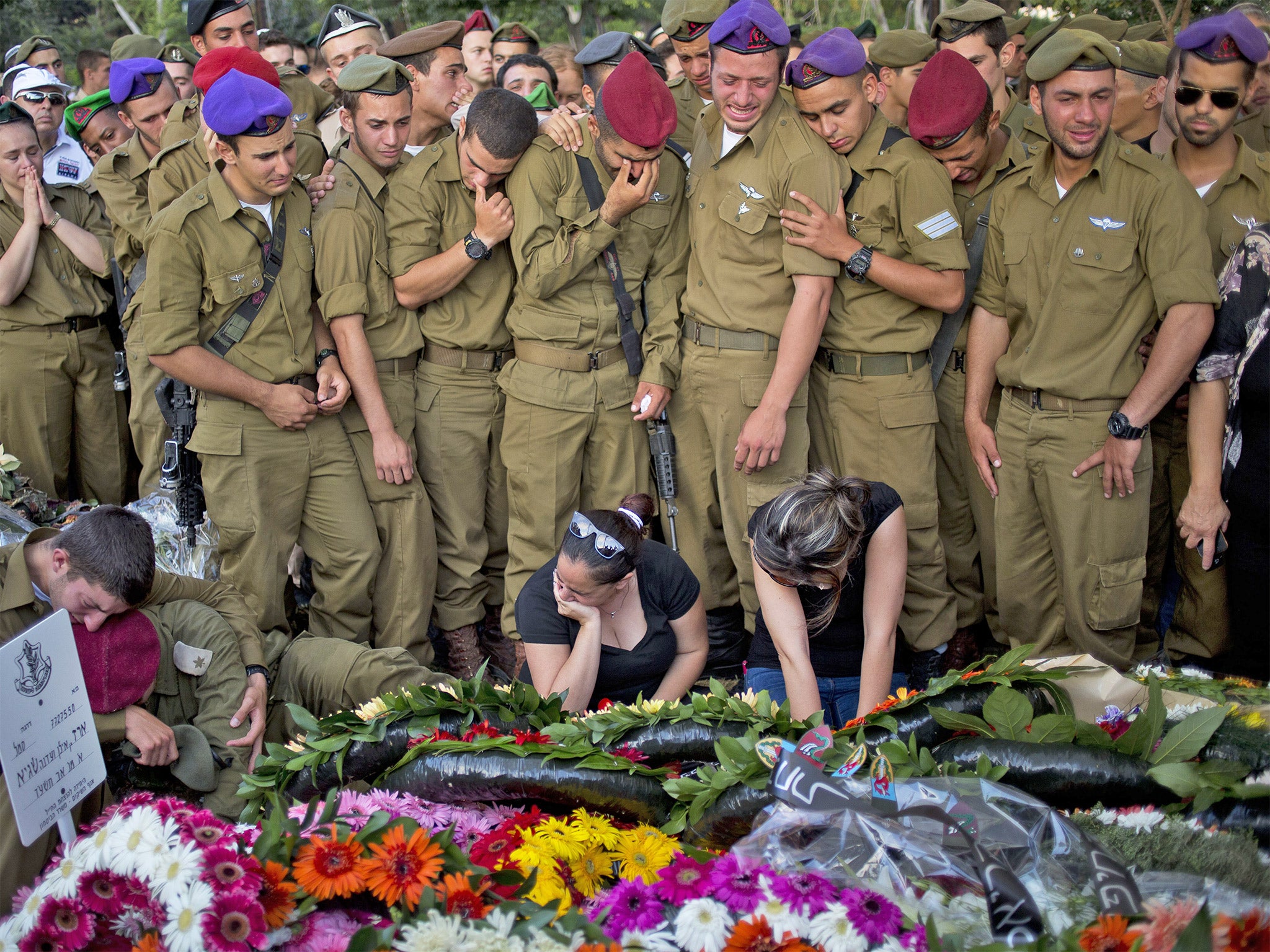Israel-Gaza conflict: Israeli support for Gaza assault remains high despite heavy casualties

In Hamas’s view, Monday was one of the most successful days of the war. For the Israeli army it was one of the costliest. Israelis were reeling in grief today as they buried 10 soldiers killed in the hostilities during three separate incidents the previous day. In Gaza, meanwhile, more than 100 were believed killed today in Israel’s retaliation.
For the tightly knit Israeli society used to the Arab side bearing the brunt of the fatalities, 10 in one day is a huge number, equalling the total number of combatants who fell in the three-week Gaza war of 2008-09 that was known as Operation Cast Lead. And it is five times the number of soldiers who died during the eight-day Gaza war of 2012, Operation Pillar of Defence.
News broadcasts opened with the names and funeral times of the fallen soldiers, a long list recited in sombre tones. And at funerals, mourners recited the Kadish prayer in Aramaic that, according to Jewish tradition, elevates to heaven the souls of the deceased.
But despite the amount of Israeli soldier fatalities – 53 during the fighting thus far – being greater than was anticipated, public support for continuing the campaign is high. According to an Israel Democracy Institute poll released today, 95 per cent of Israeli Jews view this as a “justified’’ war. So the deaths are not perceived at this point in the conflict as having been in vain.
The first soldier to die on Monday was Staff-Sgt Moshe Davino, 20, from Jerusalem. An infantryman in the Givati brigade, he was killed when an anti-tank missile fired by Hamas fighters struck the D-9 bulldozer he was in. The army declined to specify the location but Hamas declared on its website that it was in the southern city of Khan Yunis.
In the late afternoon, Staff?Sgt Eliav Kahlon, 22, Pte First Class Meidan Biton, 20, Pte First Class Niran Cohen, 20, and Sgt First Class Adi Briga, 23, were killed by a mortar attack in southern Israel’s Eshkol region while in a staging area near the Gaza border.
It was the deadliest single instance of Hamas cross-border fire since the start of the war. Then, in the evening Sgt Dor Dery, 18, Sgt Barkai Yishai Shor, 21, Sgt Nadav Raimond, 19, Sgt Daniel Kedmi, 18, and Sgt Sagi Erez, 19, were killed when Hamas fighters used a tunnel to infiltrate Israel.
According to Israeli media reports, the Hamas fighters emerged from the tunnel near Kibbutz Nahal Oz, near Gaza, and fired an anti-tank missile at the base of an army watchtower, killing the five soldiers.
According to the Israeli reports, soldiers at the top of the tower shot and killed at least one Hamas fighter who attempted to seize a soldier’s corpse. Hamas said that nine of its fighters were involved in the raid and that they tried to take captive one of the soldiers but that “conditions in the field didn’t allow it”.
Hamas, seizing on the soldiers’ deaths as proof it is winning the war, proclaimed on its Palestine Information Centre website that 10 Israeli soldiers were killed in the raid and others were wounded.
The Israeli deaths were an indication of how the price of the war may become very steep if Prime Minister Benjamin Netanyahu decides to escalate the campaign into a wider and deeper ground operation in Gaza.
For now, at least the deaths are not likely to undercut support for the current war.
“As sad and troubling as the loss of soldiers is, I think that people understand we are trying to intercept a bigger threat in the future, namely that Hamas will be stronger, and that Israel being perceived as weak invites aggression,’’ Uri Dromi, a former spokesman for Yitzhak Rabin, said.
Join our commenting forum
Join thought-provoking conversations, follow other Independent readers and see their replies
0Comments